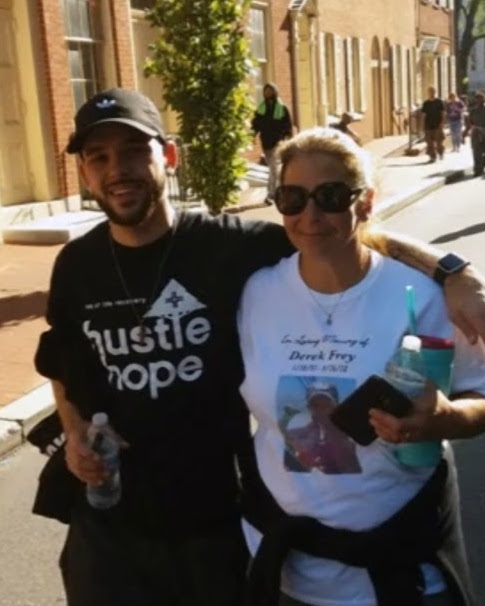
Elizabeth Mendez Berry at (212) 613-8036
WASHINGTON — The controversial marijuana law reform advertisement at issue in a recent federal lawsuit will be displayed tomorrow for the first time in the Union Station and Capitol South stops of the Washington D.C. Metro. After a legal battle between a coalition of drug policy reform groups and the federal government over a law that would have eliminated federal funding of transportation authorities that ran such ads, a federal district court ruled the law unconstitutional in June 2004. The government appealed from the district court’s decision to the Court of Appeals for the D.C. Circuit on August 2.
“We are pleased that the court’s ruling will allow the public to see this message, despite the efforts of the government to stifle our point of view,” said Graham Boyd, Director of the ACLU Drug Law Reform Project (previously known as the Drug Policy Litigation Project).
The paid advertisement will run through the end of the month. The ad shows a group of ordinary people standing behind prison bars under the headline, “Marijuana Laws Waste Billions of Taxpayer Dollars to Lock Up Non-Violent Americans.”
At issue in the case is an amendment buried in the 2004 federal spending bill that would have cut off more than $3 billion in federal funding from local transit authorities if they accepted advertisements critical of current marijuana laws and other drug laws. Last February the coalition of national drug policy reform groups filed a challenge to the “Istook Amendment,” as it is known, after the Washington Metropolitan Area Transit Authority rejected its advertisement.
In his June ruling, Judge Paul L. Friedman of the U.S. District Court for the District of Columbia affirmed that “there is a clear public interest in preventing the chilling of speech on the basis of viewpoint” and that “the government articulated no legitimate state interest in the suppression of this particular speech other than the fact that it disapproves of the message, an illegitimate and constitutionally impermissible reason.”
Critics of current marijuana policy point to a dramatic change in public opinion about current marijuana laws, citing ballooning incarceration and arrest rates and high-profile raids on sick patients who use medical marijuana. In 2003, the FBI Uniform Crime Report Statistics revealed that almost 700,000 people were arrested for marijuana offenses, and public opinion polls have consistently shown that a majority of Americans favor decriminalizing the drug.
“The Department of Justice just released statistics showing that nearly seven million people are under the control of the criminal justice system at a time when states are facing serious budgetary shortfalls,” said Joe White, Executive Director of Change the Climate. “Because drug offenses mainly account for this unprecedented rise in the prison population, considering a change in marijuana laws is an important first step.”
“Istook’s ban provides powerful evidence of how scared the federal government is of genuine debate,” said Ethan Nadelmann, Executive Director of the Drug Policy Alliance. “I guess that’s no surprise since they’re trying to defend a policy that is indefensible.”
Steve Fox, the Director of government relations for the Marijuana Policy Project added, “Filling up prisons and jails with marijuana users, regardless of the indirect consequences, is a waste of money. But sending marijuana users to prison while violent criminals are being paroled because of overcrowding is simply insane.”
The lawsuit is ACLU et al., v. Norman Y. Mineta. The government’s appeal is expected to be heard by the U.S. Court of Appeals for the District of Columbia Circuit some time in 2005. The plaintiffs are represented by the Washington D.C. law firm of Arnold & Porter LLP.
“Reasonable people can disagree about drug policy, but Congress cannot constitutionally censor one side of that discussion,” said Arthur B. Spitzer, Legal Director of the ACLU of the National Capital Area. “We look forward to protecting the First Amendment rights of those committed to reforming marijuana laws at the court of appeals level.”
Accompanying legal documents and background information can be found at www.aclu.org/drugpolicy, www.changetheclimate.org, www.drugpolicy.org, and www.mpp.org.


Notifications